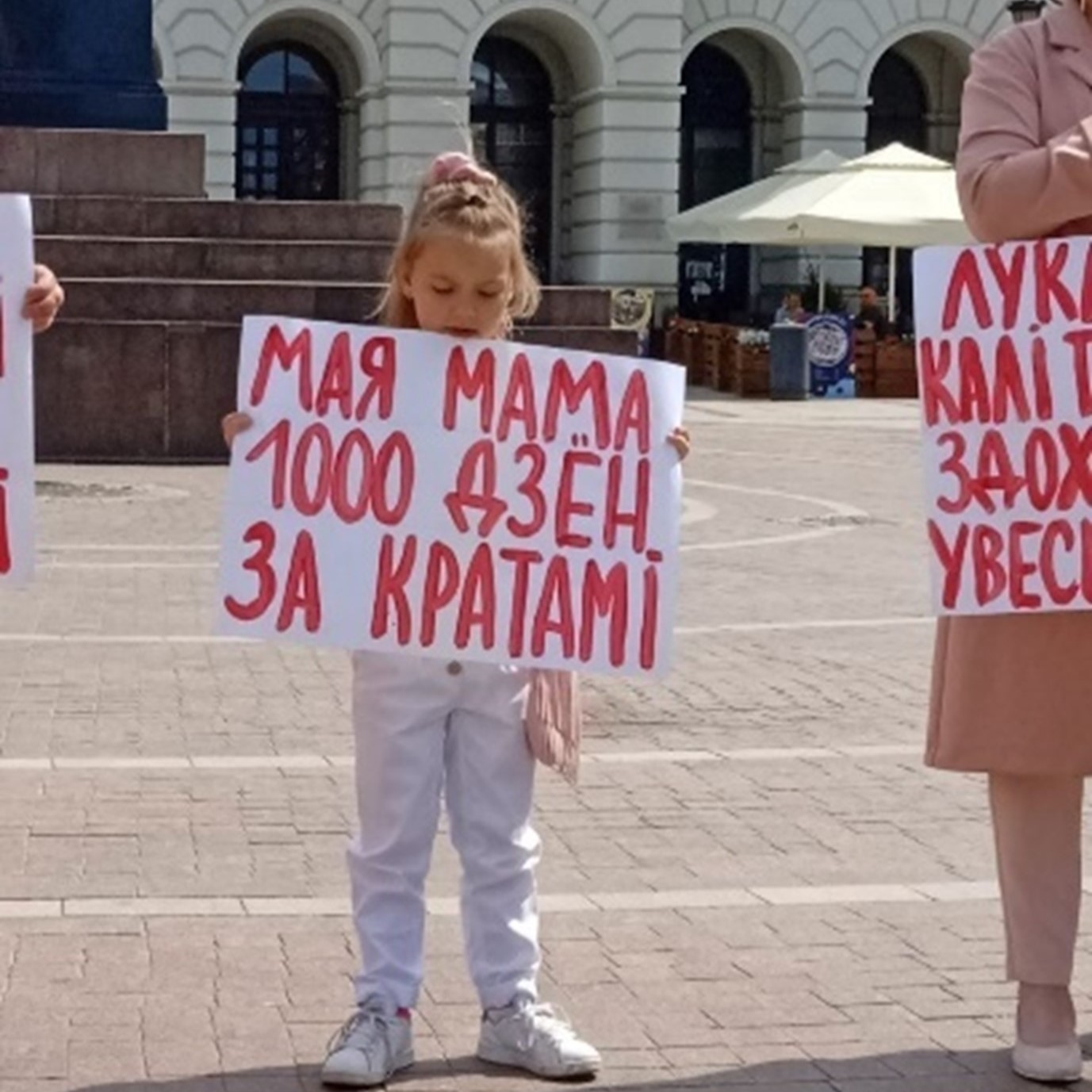As a human rights organization, we often talk and write about political prisoners. This is important, as they are among those most deprived of fundamental rights: the right to freedom of expression, freedom of association, and personal liberty. In illegal detention, political prisoners are often subjected to torture, denied medical care, and prevented from meeting with their loved ones.
We also raise the issue of the plight of the activists and human rights defenders that the families of political prisoners are often forced to become. These individuals carry on their shoulders the challenging task of advocating for their loved ones’ release, seeking international support, and ensuring the world does not forget what happens behind prison walls.
However, we seldom talk about those who unwillingly become hostages in these situations—the children of political prisoners. They too lose their closest ones, but most often cannot do anything about it. They are deprived of their right to a happy and safe childhood.
Today, according to official data, there are more than 1,400 political prisoners in Belarus. Analysts often say the real number is much higher. Many, having been undeservedly imprisoned, do not even dare to tell human rights activists about it, because they know that there are “special conditions” for all “political” people both in prison and outside it. They also know that their families and even children may become victims of collateral damage.
All political prisoners have relatives and families, many of whom include children. Sometimes, other relatives must care for these children when both parents are unjustly imprisoned. This was the case with the K. family, where both parents were sentenced to more than five years in prison, simply for supporting an opposition candidate. The children were left in the care of their grandmother, who also feared arrest. The family was concerned that if she, too, was detained, the children would be sent to an orphanage. She was forced to flee together with them.
After my daughter’s arrest, I was forced to flee Belarus with their young children, 4 and 6 years old, first to Ukraine and then to Poland. I live alone with children now and I understand that no one can replace their mother.
As crisis psychologist Irina Shumskaya says in her interview with DW:
“The younger the child, the greater the effect forced separation from their parents will have on their level of anxiety, neuroticism and emotional lability, on how a person builds relationships in the future, as well as on the child’s brain. For example, children who have been deprived of warm emotional contact react warily to new people as adults. These traumatic experiences are similar to those experienced by children whose parent has died.”
It is crucial that family members stay with children in these challenging situations. However, we must also remember that these adult guardians are experiencing a profoundly turbulent period in their own lives. They must consider their own safety and figure out how to settle in a new place or adapt to new conditions. In such circumstances, finding the moral and physical resources to provide the necessary attention to the child can be incredibly difficult.
When psychologist Irina Shumskaya is asked about how to properly help the children of political prisoners, she answers:
Gifts and holidays for the children of political prisoners are meaningless, do not brighten up their childhood in any way, and do not help them feel better. To really help, you need to make sure that the adult who is next to them feels safe and is emotionally available to the child.
This year, through the joint efforts of Belarusian human rights organizations, humanitarian foundations and the Belarusian democratic movement, a fund was created to support political prisoners in Belarus. Norway became the first state to contribute to this fund, and the Norwegian Helsinki Committee agreed to coordinate its work. At the initial stage of the fund’s work, three priority groups were agreed upon that would receive support from it: political prisoners and former political prisoners in Belarus, as well as their families and children.
We believe that providing financial and psychological support to families and children is incredibly important. In the struggle for democracy, we often forget that achieving it in the present does not guarantee its continuation for future generations. For democracy to endure, a strong, lawful system must be inherited by resilient, healthy young people. Taking care of the children of political prisoners is essential because they are the future.
Donations
If you want to contribute to the International Humanitarian Fund for Political Prisoners in Belarus, you can take contact with us or make a private donation using this QR code:

